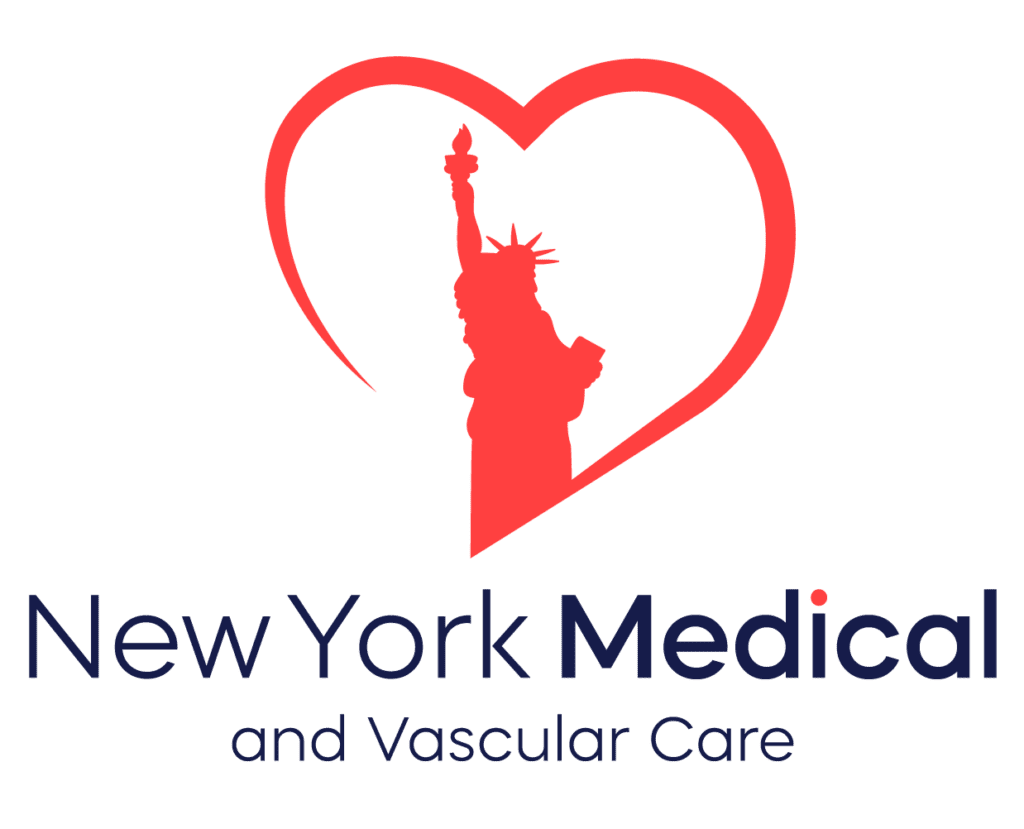High blood pressure, or hypertension, is one of the leading causes of heart disease and stroke. Known as the “silent killer,” hypertension often presents no noticeable symptoms, yet it can lead to severe health complications if left untreated. At New York Medical and Vascular Care (NYMVC), we encourage our patients to be proactive about managing their blood pressure. Here’s what you need to know about hypertension and how to keep it under control for a healthier heart.
What is High Blood Pressure?
Blood pressure measures the force of blood pushing against the walls of the arteries as the heart pumps. When this force is consistently too high, it strains the blood vessels, heart, and other organs, which can lead to serious health issues. High blood pressure is defined as a reading of 130/80 mmHg or higher, and it is categorized into different stages based on severity.
Why Managing Blood Pressure Matters
Uncontrolled high blood pressure can cause long-term damage to the heart, brain, kidneys, and blood vessels. Here are some of the potential health risks associated with hypertension:
- Heart Attack and Stroke: Hypertension is a major risk factor for both heart attacks and strokes.
- Heart Failure: High blood pressure forces the heart to work harder, which can lead to heart failure over time.
- Kidney Damage: Hypertension can damage blood vessels in the kidneys, reducing their ability to filter waste effectively.
- Vision Loss: High blood pressure can cause damage to the delicate blood vessels in the eyes, leading to vision problems.
Tips for Managing High Blood Pressure
There are several lifestyle adjustments and medical interventions that can help control blood pressure effectively. Here are our top recommendations:
1. Maintain a Healthy Diet:
- A diet rich in fruits, vegetables, whole grains, lean proteins, and low-fat dairy can help lower blood pressure. The DASH (Dietary Approaches to Stop Hypertension) diet, in particular, is designed to reduce sodium intake and promote foods that lower blood pressure.
- Limit Salt Intake: Reducing sodium in your diet is crucial for managing blood pressure. Aim to keep sodium intake under 1,500 mg per day if possible. Avoid processed foods, which often contain high amounts of salt.
2. Exercise Regularly:
- Physical activity can help lower blood pressure by strengthening the heart and improving blood flow. Aim for at least 150 minutes of moderate aerobic activity, like brisk walking or cycling, per week. Additionally, incorporating strength training can further benefit cardiovascular health.
3. Achieve and Maintain a Healthy Weight:
- Carrying extra weight increases strain on the heart and can elevate blood pressure. Losing even a small amount of weight can make a difference. Maintaining a healthy weight through balanced eating and exercise is one of the most effective ways to manage hypertension.
4. Manage Stress:
- Chronic stress can contribute to high blood pressure, so finding ways to manage it is essential. Techniques like deep breathing, meditation, yoga, and mindfulness can help reduce stress levels. Regular physical activity is also an effective stress reducer.
5. Limit Alcohol Consumption:
- Drinking too much alcohol can raise blood pressure. It’s recommended that men limit their alcohol intake to two drinks per day and women to one drink per day.
6. Quit Smoking:
- Smoking damages blood vessels and raises blood pressure. Quitting smoking not only improves blood pressure but also enhances overall heart health. Seek support if needed to help quit smoking.
7. Monitor Your Blood Pressure at Home:
- Regularly checking your blood pressure at home allows you to track changes and see how your lifestyle changes or medications are working. Keep a log of your readings to discuss with your doctor.
Medications for High Blood Pressure
In addition to lifestyle changes, many people with hypertension require medication to keep their blood pressure in a healthy range. Common medications include:
- Diuretics: Help the kidneys remove sodium and water, reducing blood volume.
- ACE Inhibitors and ARBs: Relax blood vessels by preventing the formation of a hormone that narrows blood vessels.
- Beta-Blockers: Reduce the heart rate and the force of the heartbeat, lowering blood pressure.
- Calcium Channel Blockers: Relax blood vessels by preventing calcium from entering cells of the heart and blood vessel walls.
Your doctor will recommend the best medication based on your specific health needs. It’s important to take prescribed medication as directed and to discuss any side effects with your healthcare provider.
When to Seek Medical Help
If you’re diagnosed with high blood pressure or have a family history of hypertension, it’s essential to see your healthcare provider regularly. Routine blood pressure checks can help detect any changes early, allowing you to make adjustments to your management plan as needed. If you experience symptoms like severe headaches, chest pain, vision changes, or shortness of breath, seek medical care immediately, as these may be signs of a hypertensive crisis.
Conclusion
Managing high blood pressure is a lifelong commitment that involves lifestyle adjustments, regular check-ups, and, in many cases, medication. By taking steps to control your blood pressure, you can protect your heart and enjoy a healthier life. At NYMVC, we provide personalized care and support to help our patients achieve and maintain optimal blood pressure levels.
Written by DapraLab


